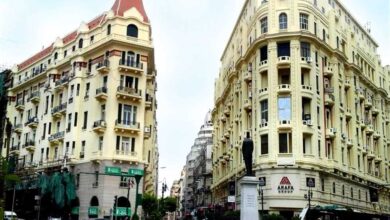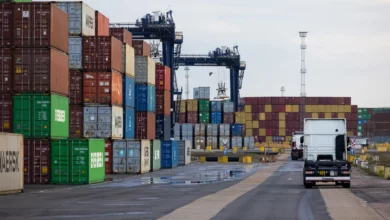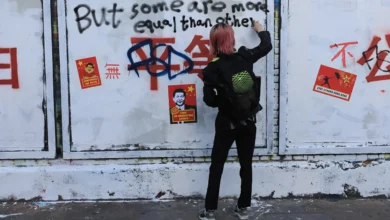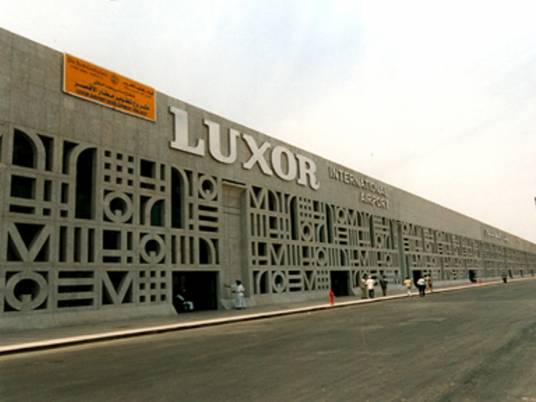LONDON – In the shadow of central London landmark Marble Arch, around 50 protesters gathered on Saturday in support of the mass demonstration in Tahrir Square in Cairo on Friday, calling for an end to military trials for civilians among other demands.
Nearly 12,000 civilians have been tried in military courts since the Supreme Council of the Armed Forces (SCAF) took over control of the country in February. Thousands of Egyptians took to Tahrir Square on Friday to protest the council's practices and call for the end of its rule, although the latter had vowed to withdraw security forces and not protect the gathering.
London's sister protest aimed to add the voices of Egyptians living abroad to those calling for end to military trials for civilians. It was organized by United Egyptians, a group formed in the UK during the 25 January revolution.
"Egyptians living abroad feel a sense of ownership and they feel this is their revolution as well," explained protestor Fadi Girgis, a member of United Egyptians. "I think during the 18 days of the revolution the protests in London showed how much Egyptians really feel that their living abroad doesn't mean that they don't care what's happening in Egypt."
Daily protests were held outside the Egyptian embassy in London throughout the revolution, which peaked with hundreds attending to demand the fall of then-President Hosni Mubarak.
And at this latest London protest, anti-Mubarak slogans were replaced by ones aimed at the SCAF as people chanted, waved Egyptian flags, sang the national anthem and discussed the clashes the night before at the Israeli Embassy in Cairo.
After spending the day in Tahrir, some protesters moved to the Israeli Embassy and removed a fence built by the government to protect it against further actions that were spurred by the killing of six Egyptian guards by Israeli forces in the border area of Sinai.
Girgis also addressed the crowd about reforming the judicial system to bring about greater independence and fairness, pointing in particular to planned amendments led by Judge Ahmed Mekky to the judicial authority law. "Mekky is amending the law for an independent judiciary system which is a very important step and we need to show support for that as well," he said.
Mohamed Abdel Ghani is a founder of United Egyptians and he explained that the protest addressed both the people and military rulers of Egypt. "We aim to show solidarity with the people of Egypt who protested on Friday," says Abdel Ghani. "And second is a message of determination to the supreme military council that we will not turn a blind eye, that we will show all their violations of human rights and the basic rights of Egyptians, and one of them is military trials of civilians."
Military trials been strongly condemned by international rights groups. Joe Stork, deputy Middle East and North Africa director at Human Rights Watch, called it a "travesty of justice," saying, "Nearly 12,000 prosecutions since February is astounding and shows how Egypt's military rulers are undermining the transition to democracy."
Organizers were disappointed with the turnout at Marble Arch, but Abdel Ghani sees this as part of broader developments post-Mubarak that reflect what is happening in Egypt, and not an indication of a lack of engagement.
"We are currently dealing with more sophisticated political issues compared to what we were dealing with in the first 18 days of the revolution until Mubarak was toppled. As you start debating and discussing more sophisticated issues, people have different views. I believe the majority of Egyptians, if not all of them, here in London are with the revolution but might differ on the aims."
Thus United Egyptians, as a non-partisan organization, is trying to keep the Egyptian diaspora community united around the demands of the revolution, promote the involvement and political awareness of Egyptians living abroad, and push for their voting rights.
The group is also seeking to influence policy makers in London – in early February it protested outside 10 Downing Street and presented a petition to Prime Minister David Cameron demanding an end to British support for Mubarak. However, they insist that the UK government should remain engaged, if minimally, in Egyptian affairs.
"From the time United Egyptians was founded, we made it very clear that we believed that any change would come from inside Egypt," says Abdel Ghani. "We are against any foreign pressure on any Egyptian authority but at the same time, as we demanded in the first 18 days of the revolution, we would like the British government and other western government not to cover for human rights violations."




